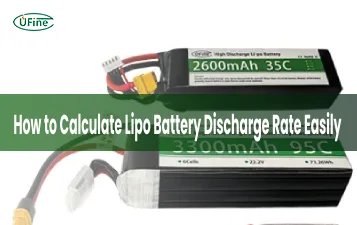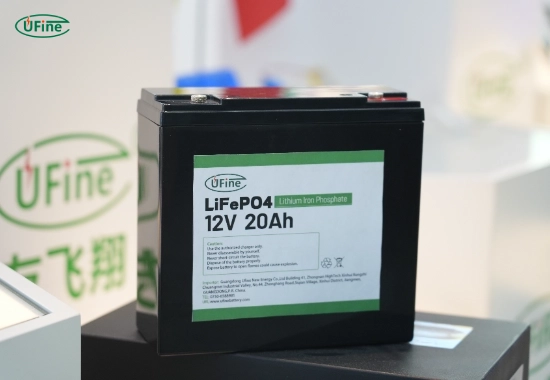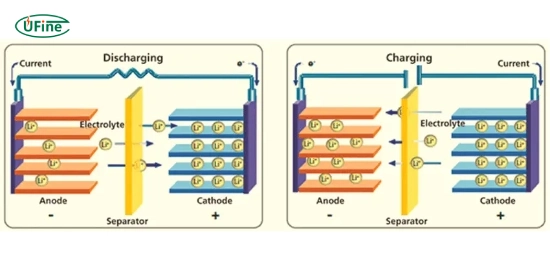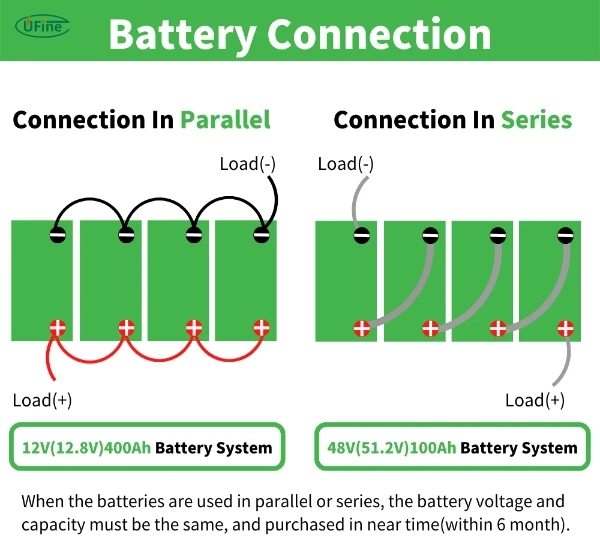Thanks to its safety, longevity, and efficiency, the 12V LiFePO4 battery has emerged as a leading choice for energy storage solutions in various applications. As the demand for reliable power sources continues to grow, understanding the features and benefits of these batteries becomes essential for consumers and enthusiasts alike. This comprehensive guide will explore the ins and outs of 12V LiFePO4 batteries, including their advantages, applications, and maintenance tips. Whether considering a purchase or seeking to expand your knowledge, this article provides valuable insights.
Part 1. What is a LiFePO4 battery?
A LiFePO4 battery is a lithium-ion battery that utilizes lithium iron phosphate as its cathode material. This specific chemistry offers several advantages over traditional lithium-ion batteries, such as enhanced thermal stability and a longer lifespan. LiFePO4 batteries are recognized for their high energy density, making them ideal for various applications, including electric vehicles, solar energy systems, and portable power solutions.
Key Characteristics of LiFePO4 Batteries
- Safety: LiFePO4 batteries are less prone to overheating and thermal runaway than lithium-ion batteries.
- Longevity: They typically have a cycle life of over 2000 cycles, significantly outlasting conventional lead-acid batteries.
- Efficiency: These batteries offer high charge and discharge efficiency, making them suitable for applications requiring rapid energy transfer.
Part 2. How does a 12V LiFePO4 battery work?
A 12V LiFePO4 battery operates on the principle of lithium-ion movement between the anode and cathode during charging and discharging cycles. When charging, lithium ions move from the cathode (LiFePO4) to the anode (usually graphite), storing energy in the process. During discharge, the flow reverses, releasing power for use.
Components of a 12V LiFePO4 Battery
- Anode: Typically made from graphite, it stores lithium ions during charging.
- Cathode: Composed of lithium iron phosphate, it releases lithium ions during discharge.
- Electrolyte: A lithium salt dissolved in an organic solvent that facilitates ion movement between the anode and cathode.
- Separator: A porous membrane that prevents direct contact between the anode and cathode while allowing ion flow.
Part 3. Advantages of using 12V LiFePO4 batteries
Choosing a 12V LiFePO4 battery comes with numerous benefits:
- Longer Lifespan: With a lifespan of up to 10 years or more, these batteries outperform traditional lead-acid options.
- Lightweight Design: They are significantly lighter than lead-acid batteries, making them easier to handle and transport.
- Fast Charging Capabilities: LiFePO4 batteries can be charged quickly without harming their lifespan.
- Wide Temperature Range: They perform well in various temperature conditions, from -20°C to 60°C (-4°F to 140°F).
Part 4. Applications of 12V LiFePO4 batteries
Users can take advantage of the versatility of 12V LiFePO4 batteries in various applications:
- Solar Energy Systems: Ideal for storing energy generated from solar panels for later use.
- Electric Vehicles (EVs): Manufacturers commonly use these batteries in electric cars and e-bikes due to their lightweight and efficient energy storage.Marine Applications: They are suitable for powering boats and other marine equipment due to their resistance to vibration and shock.
- Backup Power Systems: People use these in uninterruptible power supplies (UPS) for homes and businesses.
Part 5. How to choose the right 12V LiFePO4 battery?
Selecting the right 12V LiFePO4 battery involves considering several factors:
- Capacity (Ah): Calculate your energy needs by calculating the power you require in amp-hours (Ah).
- Weight: Consider the weight if portability is essential for your application.
- Cycle Life: Look for a battery with a higher cycle life for better longevity.
- Brand Reputation: Choose reputable brands known for quality products and customer service.
- Warranty: Check for warranties that reflect the manufacturer’s confidence in their product’s durability.
Part 6. Installation tips for 12V LiFePO4 batteries
Proper installation is crucial for maximizing the performance of your 12V LiFePO4 battery:
- Read the Manual: Always consult the manufacturer’s manual before installation.
- Use Appropriate Wiring: Ensure that you use wiring rated for the current capacity of your battery.
- Secure Mounting: Mount the battery securely to prevent movement during operation.
- Ventilation: Ensure proper ventilation around the battery to dissipate heat effectively.
Part 7. Maintenance of 12V LiFePO4 batteries
Maintaining your 12V LiFePO4 battery can extend its lifespan significantly:
- Regular Inspection: Check connections and terminals for corrosion or damage regularly.
- Keep Clean: Clean any dust or debris from the battery surface to avoid short circuits.
- Monitor Voltage Levels: Use a multimeter to check voltage levels periodically; this helps identify issues early on.
- Avoid Deep Discharge: Do not regularly discharge below 20% capacity to prolong battery life.
Part 8. Can I connect multiple 12V LiFePO4 batteries?
You can connect multiple 12V LiFePO4 batteries, but it’s essential to do so correctly to ensure safety and efficiency:
- In-Series Connection: Connecting batteries in series increases voltage while keeping capacity (Ah) constant. For example, two 12V batteries connected in series will provide 24V but maintain their original amp-hour rating.
- In Parallel Connection: Connecting batteries in parallel maintains voltage while increasing capacity (Ah). For instance, two 12V batteries connected in parallel will still output 12V but double the available amp-hours.
Important Considerations
When connecting multiple batteries:
- Ensure all batteries are of the same type, capacity, and age.
- Use appropriate wiring gauges based on the total current draw.
- Monitor individual battery voltages regularly to ensure balanced charging and discharging.
Part 9. FAQs
-
What is the lifespan of a 12V LiFePO4 battery?
With proper care and usage, the average lifespan of a 12V LiFePO4 battery can exceed 10 years, making it one of the longest-lasting options available today. -
Can I use a regular charger with my 12V LiFePO4 battery?
No, using a regular charger can damage your LiFePO4 battery. Using a charger specifically designed for lithium iron phosphate chemistry is essential. -
Are 12V LiFePO4 batteries safe?
Yes, they are considered one of the safest types of lithium batteries due to their thermal stability and low risk of fire or explosion under normal operating conditions. -
How do I store my 12V LiFePO4 battery?
Store your battery in a cool, dry place away from direct sunlight. It’s best to keep it at around 50% charge if not used for extended periods. -
What should I do if my battery is not holding charge?
If your battery isn’t holding charge effectively, check connections for corrosion or damage, ensure it’s charged with an appropriate charger, and consult a professional if issues persist.
Related Tags:
More Articles

LiPo Battery Discharge Rate Guide & Calculation Tips
Understand LiPo battery discharge rates, C-ratings, and how to calculate max current. Essential guide for RC, drones, and electronics users.
High‑Capacity 3S LiPo Batteries: 5000 mAh vs. 10000 mAh
Compare 3S LiPo 5000mAh vs 10000mAh batteries by weight, power, and use. Find the best fit for your drone, RC car, or boat setup.
Top 5 Applications for Small 3S LiPo Batteries
Small 3S LiPo batteries power drones, RC gear, wearables, and robotics with high energy and low weight. Making them ideal for compact electronics projects.
Building and Charging Your Own 3S LiPo Pack: A Step‑by‑Step Guide
Learn how to build, balance, and charge a 3S LiPo battery pack safely at home with this complete DIY guide for hobbyists and beginners.
How to Choose the Right LiPo Battery Plug Type?
Discover the best LiPo battery plug types, how to choose them, and expert tips for safe usage, soldering, and maintenance.






